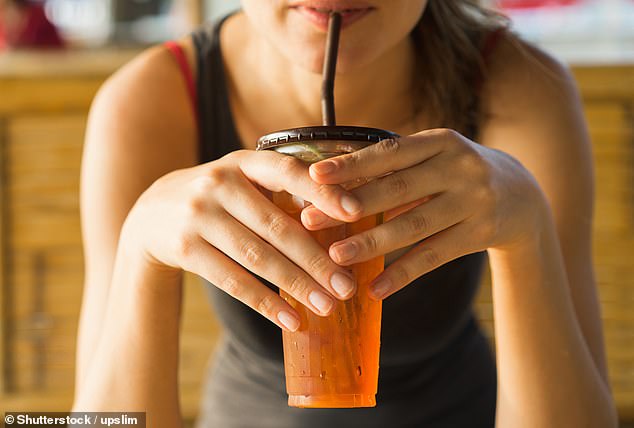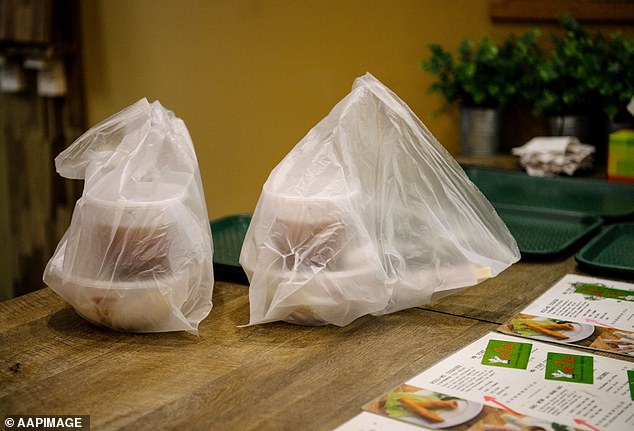From next week, say goodbye to plastic straws and bags! Australia just BANNED all single-use plastic
By
- Replies 24
We've all been there – you're out and about, enjoying a cold drink on a hot day, and suddenly you realise you don't have a straw. What do you do? If you're like most people, your first instinct is to reach for a plastic straw.
But what if we told you that very soon, plastic straws could be completely banned in Australia? That's right – all states and territories across the country will soon be focusing all their efforts on getting rid of single-use plastics.
The latest initiative, which forbids the widespread sale of single-use items like straws, stirrers, cutlery, and cotton buds, will start in NSW on November 1 and be followed by other jurisdictions at their own pace.
This ban will also include polystyrene food packaging and microbeads in personal care products such as toothpaste and face wash.
Since the beginning of this year, lightweight plastic bags have been prohibited throughout the country, which has helped to minimise the amount of plastic waste that is produced, transported, and discarded in landfills and littering our streets, oceans, and waterways.

Before long, Australians will be able to eliminate plastic containers, bags, cutlery, and straws from their household consumables too.
Any businesses that continue to stock banned items will be charged monetary fines of up to $55,000, and offenders who knowingly continue to defy the rules may be subject to a penalty of up to $275,000.
A ban on plastic straws, cups, and packaging has already been put in place in Queensland. You can read more about this here.
Additionally, a statement from the Queensland government confirmed that cotton buds will also be subject to the same restrictions by the end of the year.
Meanwhile, national retail organisations have demanded that single-use plastics be consistent across the country.
Paul Zahra, CEO of the Australian Retailers Association, stated that it was especially difficult for small retailers to manage different regulations.
'The challenge is that we have different products being phased out at different times across the country,' he said.

Major retailers such as Coles, Woolworths, and ALDI have already taken steps to reduce their stock of single-use plastics.
For persons who need plastic straws for medical, scientific, or forensic purposes, there will be exclusions from the policy for eradicating single-use plastics in NSW. However, it should be noted that these plastic straws must only be purchased from chemists or online.
Additionally, retailers who use paper plates and bowls with plastic lining will have a two-year window to find substitutes.
According to the Department of Environment, a nationally consistent set of policies will be 'great for the environment and will make businesses' life easier, particularly those with a national footprint.
The NSW government estimates that the prohibition will result in a reduction of 2.7 billion plastic litter.
The fact that single-use plastics shed tiny slivers of what has been dubbed 'microplastics' raises serious concerns.
The human body has been proven to contain these microplastics, which are so widespread that they have been detected on Mount Everest, in Antarctic snow, and especially in oceans and waterways.
Studies have revealed that microplastics have been detected in the lungs, brains, and blood of both living and deceased individuals.
Scientists have concluded that microplastics may be responsible for the development of cancer, cardiovascular disease, and dementia, as well as reproductive issues.

The banning of single-use plastics has been a controversial topic for many years. Some people believe that it is a necessary step to reduce environmental pollution, while others argue that it would be an ineffective measure that would cause undue hardship for businesses and consumers.
Keeping this in mind, we want to ask you: what do you think about Australia's plans to ban single-use plastics? Do you believe that a nationwide ban on single-use plastics is the way forward or extreme measures? Let us know your thoughts in the comments below!
But what if we told you that very soon, plastic straws could be completely banned in Australia? That's right – all states and territories across the country will soon be focusing all their efforts on getting rid of single-use plastics.
The latest initiative, which forbids the widespread sale of single-use items like straws, stirrers, cutlery, and cotton buds, will start in NSW on November 1 and be followed by other jurisdictions at their own pace.
This ban will also include polystyrene food packaging and microbeads in personal care products such as toothpaste and face wash.
Since the beginning of this year, lightweight plastic bags have been prohibited throughout the country, which has helped to minimise the amount of plastic waste that is produced, transported, and discarded in landfills and littering our streets, oceans, and waterways.

With the implementation of a ban on single-use plastics, paper drinking straws will take the place of plastic ones starting the next week throughout NSW. Credit: Shutterstock/upslim.
Before long, Australians will be able to eliminate plastic containers, bags, cutlery, and straws from their household consumables too.
Any businesses that continue to stock banned items will be charged monetary fines of up to $55,000, and offenders who knowingly continue to defy the rules may be subject to a penalty of up to $275,000.
A ban on plastic straws, cups, and packaging has already been put in place in Queensland. You can read more about this here.
Additionally, a statement from the Queensland government confirmed that cotton buds will also be subject to the same restrictions by the end of the year.
Meanwhile, national retail organisations have demanded that single-use plastics be consistent across the country.
Paul Zahra, CEO of the Australian Retailers Association, stated that it was especially difficult for small retailers to manage different regulations.
'The challenge is that we have different products being phased out at different times across the country,' he said.

Following a conference of environment ministers, lightweight single-use plastic restrictions are also being phased out across Australia. Credit: AAP Image.
Major retailers such as Coles, Woolworths, and ALDI have already taken steps to reduce their stock of single-use plastics.
For persons who need plastic straws for medical, scientific, or forensic purposes, there will be exclusions from the policy for eradicating single-use plastics in NSW. However, it should be noted that these plastic straws must only be purchased from chemists or online.
Additionally, retailers who use paper plates and bowls with plastic lining will have a two-year window to find substitutes.
According to the Department of Environment, a nationally consistent set of policies will be 'great for the environment and will make businesses' life easier, particularly those with a national footprint.
The NSW government estimates that the prohibition will result in a reduction of 2.7 billion plastic litter.
The fact that single-use plastics shed tiny slivers of what has been dubbed 'microplastics' raises serious concerns.
The human body has been proven to contain these microplastics, which are so widespread that they have been detected on Mount Everest, in Antarctic snow, and especially in oceans and waterways.
Studies have revealed that microplastics have been detected in the lungs, brains, and blood of both living and deceased individuals.
Scientists have concluded that microplastics may be responsible for the development of cancer, cardiovascular disease, and dementia, as well as reproductive issues.
Key Takeaways
- Australia is banning all single-use plastics, including containers, bags, cutlery and straws.
- Businesses that sell banned items face fines of up to $55,000.
- The decision to have a nationally consistent set of policies around single-use plastics was made at a meeting of environment ministers during the week.
- Major supermarket chains such as Coles, Woolworths and ALDI have already removed many single-use plastics from their shelves.
The banning of single-use plastics has been a controversial topic for many years. Some people believe that it is a necessary step to reduce environmental pollution, while others argue that it would be an ineffective measure that would cause undue hardship for businesses and consumers.
Keeping this in mind, we want to ask you: what do you think about Australia's plans to ban single-use plastics? Do you believe that a nationwide ban on single-use plastics is the way forward or extreme measures? Let us know your thoughts in the comments below!







